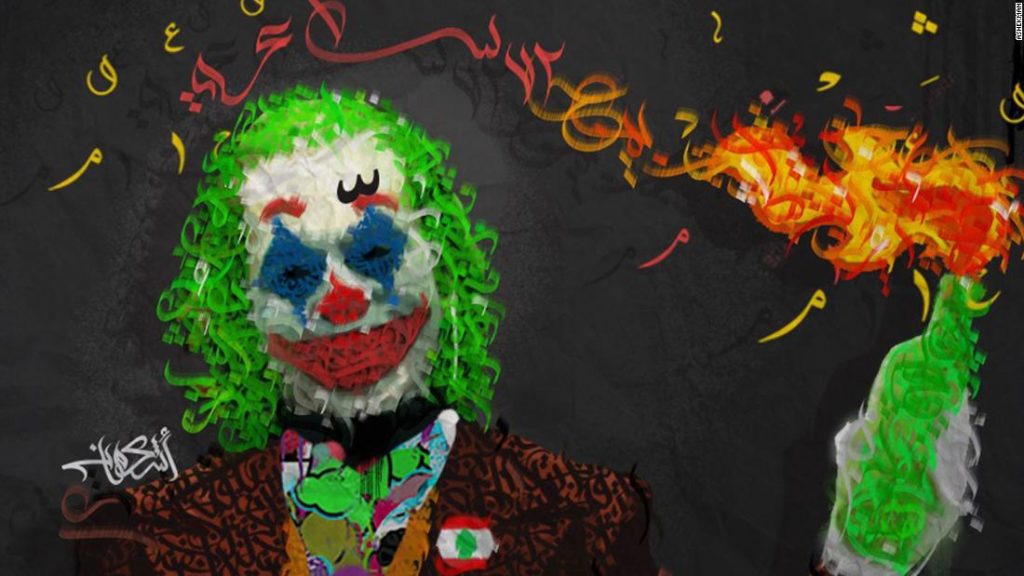When Joker first arrived in theaters, there was significant outcry about the character possibly inspiring disturbed individuals to carry out violence. There was precedent for this, too:in Aurora, a lone gunman shot several people during a 2012 screening of the film The Dark Knight Rises.
Despite such concerns, Joker has actually gone onto inspire people in very different circumstances: anti-government protests across the world are adopting the Joker as a symbol of defiance.
Joker is not the first pop culture figure to be co-opted for protests. Recently, Money Heist, V for Vendetta and The Handmaid’s Tale have all inspired protesters to don masks and costumes. What the Joker has in common with something like V for Vendetta is the way it represents outrage and resistance against a ruling class. In the film, Gotham is falling apart due to poverty and crime while the rich continue to lead lavish lives and look down upon the poor in disdain.
This is similar to the current situation in Chile, for instance, where right-wing government policies have prohibitively increased the cost of living for its citizens, whereas in Beirut, protesters are demanding the complete removal of the elite ruling class. People are donning Joker’s face paint, or spray-painting statues with phrases such as “we are all clowns”. In Hong Kong, people are dressing up as Joker in direct response to the government ban of face masks and face coverings in public.
Another thing that’s important about Joker is the fact that it’s not tied to any specific set of political beliefs. This kind of fluidity allows protesters to adopt the cultural symbols in a wide variety of circumstances.
“The Joker is us,” said Mohammad Kabani, a Lebanese artist part of the street art collective Ashekman, to CNN. “This is the Lebanese society situation at the moment, full of underdogs, full of oppressed people that are extremely frustrated and that is looking for a window of hope.” Kabbani and his twin brother Omar drew graffiti of the Joker holding a Molotov cocktail on a Lebanese street.

People are using Joker not only to make a statement, but also to signal governments that they are dissatisfied and want change. Since the movie is so popular, using Joker iconography also makes it easier for protests to gain more global attention.
Some have expressed distaste at the use of Joker in such situations, due to the character’s history of violence and villainy. People have responded to this criticism, stating that they are shedding the bad aspects of Joker and his use is meant to be a form of expression, rather than a literal endorsement of the figure.
“When I say ‘take over the streets,’ it’s definitely not with violence,” Kabbani said. “Our protest and the demonstration in Lebanon is all about peace and harmony. Words are more powerful than the gun.”
Still, there remains the fact that the Joker in the film is less of a charismatic revolutionary and more of a mentally ill, frustrated man lashing out against society. Although he does go on to inspire riots and protests in Gotham city, it’s hard to label these movements as being morally right or positive.
“Joker, is an ‘incel’ (involuntary celibate), and his issues aren’t the issues that are the focus of real-life protests and civil unrest happening across the globe,” wrote Rafael Cereceda for Euro News. “Conflating his story with, for example, a people wanting to protect themselves from a potentially dangerous extradition bill, would be to misunderstand both the protests and the film.”
As it stands, the impact of Joker is undeniable: not only is it the highest grossing R-rated film in history, it’s also become a symbol for change in protests across the world. Like V for Vendetta, the film’s impact may last long beyond its theater run.